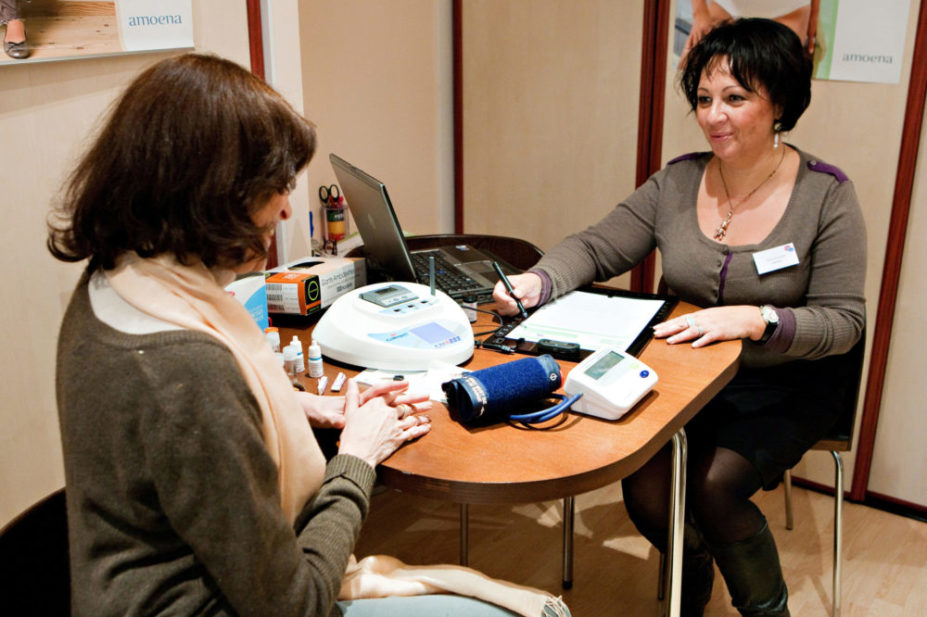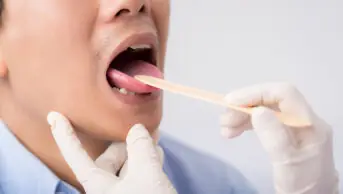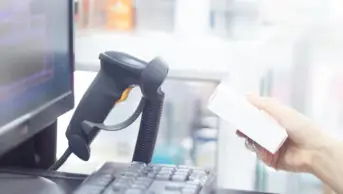
BSIP SA / Alamy Stock Photo
Supplying treatments for minor illness through community pharmacies in England could save the NHS up to £640m per year, the Pharmaceutical Services Negotiating Committee (PSNC) has said.
In written evidence submitted to the Health and Social Care Select Committee as part of its inquiry into the ‘Future of General Practice’, which began in November 2021, the PSNC listed “a number of ways” community pharmacies could better support GPs.
The evidence, published on 12 January 2022, lists five examples of how existing pharmacy services could be extended to ease pressure on general practice, including an “extension of minor ailments support”.
This extension would expand the ‘Community pharmacist consultation service’ (CPCS) to “allow pharmacists to supply certain prescription medicines for minor ailments” using patient group directions (PGDs).
“Currently, some people referred to pharmacies using the CPCS end up returning to general practice because they require treatment with a prescription-only medicine,” the document said.
“Other patients return to general practice where they are unable to afford to purchase an over the counter medicine that the pharmacy has advised is needed.”
Instead, the PSNC suggested “streamlining” the service to enable patients to self-refer to the pharmacy “and access their appropriate medicines (for minor ailments), at NHS expense, without involving the GP at all”.
“We estimate that pharmacies could save the NHS up to £640m per year by assisting more in the treatment of minor ailments,” the PSNC said.
“We estimate that if 40 million GP appointments were transferred from GPs to pharmacists via the CPCS, the net cost to the NHS would be £560m. This compares to a cost of £1.2bn under the current system of only using GPs.”
The proposal follows a similar suggestion made by health secretary Sajid Javid in October 2021, when he confirmed that talks were underway with NHS England about a ‘Pharmacy First’ scheme for England, “so pharmacists can provide treatment for specific conditions” without having to see a GP.
The model follows Scotland’s ‘NHS Pharmacy First’ scheme, which has been running in community pharmacies across the nation since July 2020. Through the service, pharmacists can offer free advice, treatment and referrals to patients presenting with minor conditions and supply treatment for certain conditions.
In a statement to The Pharmaceutical Journal on 17 January 2021, a spokesperson for the PSNC clarified that while NHS England has said that 20 million GP appointments could be transferred to community pharmacy, “a higher estimate can be reached by looking at other sources”.
“There were 312 million GP appointments in 2019. A 2015 study showed that 13% of GP appointments are for minor ailments, which could be treated in pharmacies.
“Using these figures gives a total of around 40 million GP appointments per year that could be transferred to community pharmacy,” they said.
The PSNC spokesperson added that NHS England has priced the average cost of a GP appointment at £30, suggesting: “The cost to provide 40 million minor ailments GP appointments per year is £1.2bn, but the cost to transfer these to pharmacies as CPCS minor ailments consultations (remunerated at £14 each) would only be £560m, resulting in a 53% cost reduction.”
They said that the £640m figure was “an estimate of the scale of the savings possible … and not taking into account the unknown impact of a variety of variables such as how COVID-19 has affected patient behaviours already, whether GP consultation costs have changed during COVID, and, most importantly, what the scope and funding arrangements of any ‘Pharmacy First’ scheme might be”.
What is the ‘Community pharmacist consultation service’?
The ‘Community pharmacist consultation service’ (CPCS) launched in October 2019, replacing the ‘NHS urgent medicine supply advanced service’ and ‘Digital minor illness referral service’ pilots.
In the initial phase of the services, patients were referred from NHS 111 to community pharmacies for free advice or an onward referral, with patients also able to pay for over-the-counter medicines.
In November 2020, the service was expanded to include referrals from general practice. However, uptake from GPs was slower than expected, with some local pharmaceutical committees receiving extra funding to increase GP referrals.
Data from NHS England showed that 340,000 patients had been referred from NHS 111 as of June 2021, while GPs had referred 13,000 patients to community pharmacies since the service began.
The service has also failed to bring in the promised levels of funding. It had been expected to bring in around £4m in 2019/2020 and £9m in 2020/2021, with pharmacists paid £14 per consultation; however, the low uptake meant the projected funding levels were not reached.
Data published on 28 October 2021 by NHS Business Services Authority show that community pharmacies earned just £1.9m through the CPCS in 2019/2020 and £5.3m in 2020/2021.
Nevertheless, there could still be further opportunities for the number of referrals to increase as nine areas began piloting referrals from urgent treatment centres, such as emergency departments, in November 2021.
Read more: Learning resources on minor ailments


